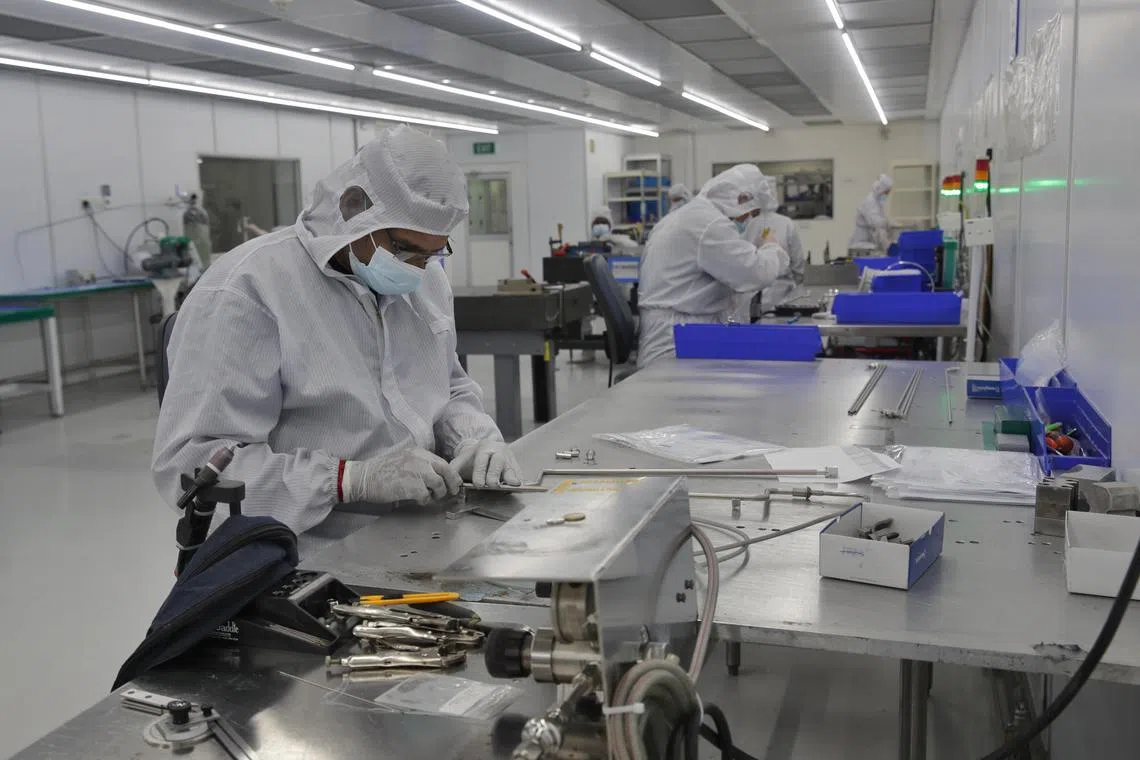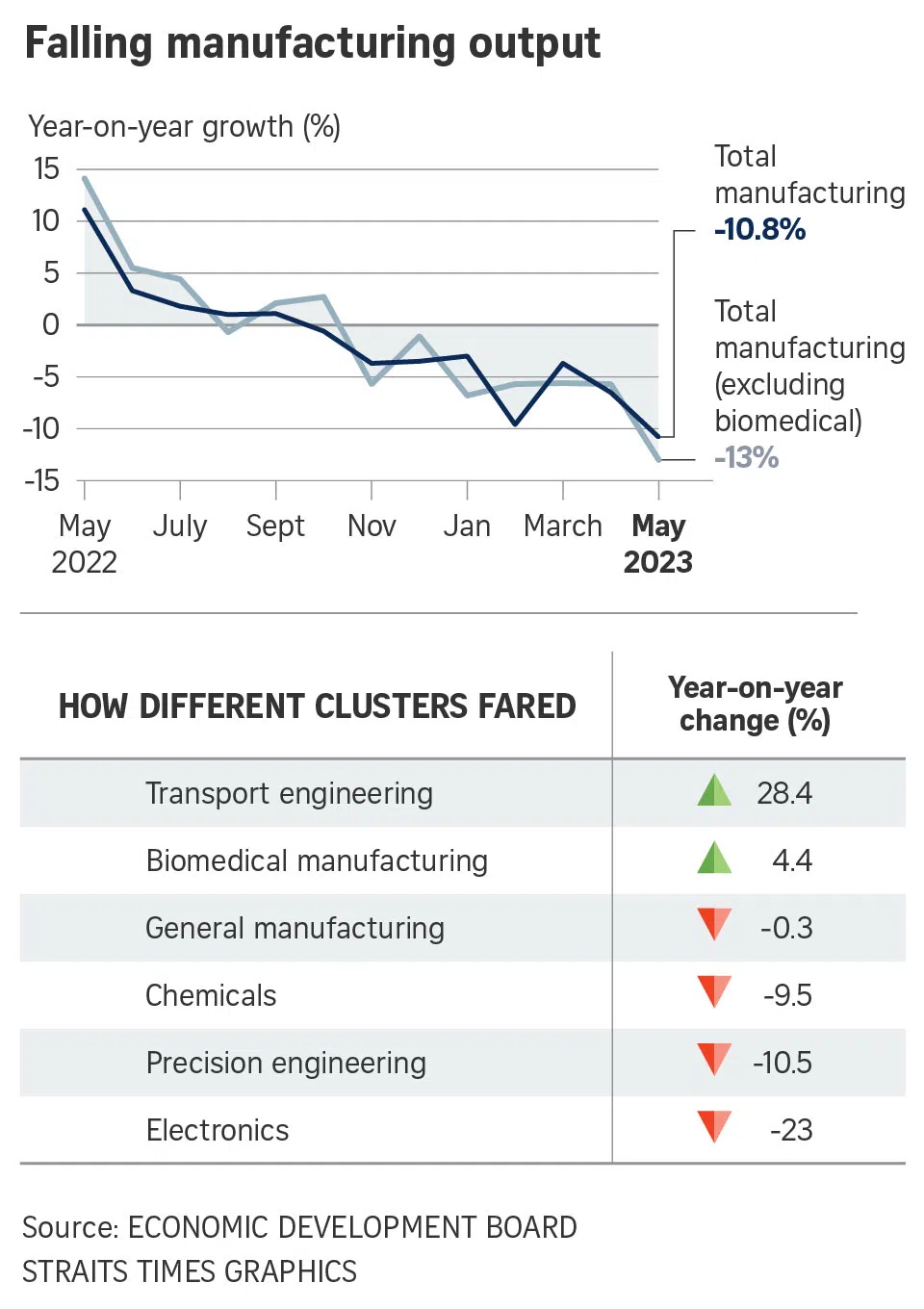S’pore faces higher risk of technical recession as factory output slumps again
Sign up now: Get ST's newsletters delivered to your inbox

Singapore's semiconductor output fell 26.8 per cent year on year in May.
PHOTO: ST FILE
SINGAPORE – Singapore’s manufacturing output contracted for an eighth straight month in May. The slump was deeper than expected, putting the economy at higher risk of a technical recession.
Factory output last month fell 10.8 per cent from a year ago, the first double-digit contraction since November 2019 when it dropped 12.3 per cent.
It was also sharper than the median 7.3 per cent fall forecast by economists in a Bloomberg poll.
This was after production fell a revised 6.5 per cent in April,
Excluding volatile biomedical manufacturing, May’s output fell 13 per cent year on year.
On a seasonally adjusted month-on-month basis, output shrank 3.9 per cent. Excluding biomedical manufacturing, it dropped 8 per cent compared with April.
Electronics, which account for 45 per cent of Singapore’s export-driven manufacturing sector, was the worst performer, as output tumbled 23 per cent in May from a year ago.
Within electronics, semiconductor output plunged 26.8 per cent. Computer peripherals and data storage followed with a 26.6 per cent fall, while other electronic modules and components fell 9.2 per cent.
May’s dismal performance underlines the growing headwinds sparked by a global recession story coupled with the ongoing indigestion in the global semiconductor industry, notwithstanding recent market hype about artificial intelligence (AI), said OCBC Bank chief economist Selena Ling.
For full-year 2023, Singapore’s industrial production may shrink 3 per cent year on year, as a recovery by the global electronics industry, especially for semiconductors, looks likely to be postponed from the third quarter of 2023 to the end of 2023 or even early 2024, she said.
“This would potentially mark the worst annual performance for Singapore’s industrial production since 2015 when it fell 5.1 per cent year on year.”
UOB senior economist Alvin Liew said there is a substantial risk that Singapore will enter a technical recession – defined as two consecutive quarters of contractions – in the first half of 2023, largely on the weakness in manufacturing.
Apart from electronics, all other manufacturing clusters saw output shrink year on year, with the exception of transport engineering and biomedical manufacturing.
The precision engineering cluster saw its output fall by 10.5 per cent. Output for precision modules and components shrank 10 per cent.
The machinery and systems segment fell 10.1 per cent on lower output of semiconductor equipment and refrigeration and air-conditioning compressors.
The chemicals sector saw output fall 9.5 per cent, while general manufacturing shrank 0.3 per cent.
In contrast, the transport engineering sector posted a 28.4 per cent output increase.
Biomedical manufacturing output also rose by 4.4 per cent year on year.

DBS economist Chua Han Teng said high interest rates in advanced economies and a bumpy post-pandemic recovery in China
Said Mr Chua: “While manufacturers are still hopeful that China’s reopening will provide a boost in the coming months, we need to watch for some stabilisation in the sequential momentum, before we can be more confident about a convincing turnaround in the second half of 2023.”
Maybank economists Chua Hak Bin and Brian Lee ascribed a small probability that the Monetary Authority of Singapore may ease the slope of its appreciation stance for the Singapore dollar if core and services inflation drop more quickly in the event of a recession.
They added: “We expect the government to unveil more fiscal support measures to cushion the downturn. The scheduled 1 per cent hike in the GST rate (to 9 per cent) in January 2024 may be deferred or cancelled if the recession deepens.”


